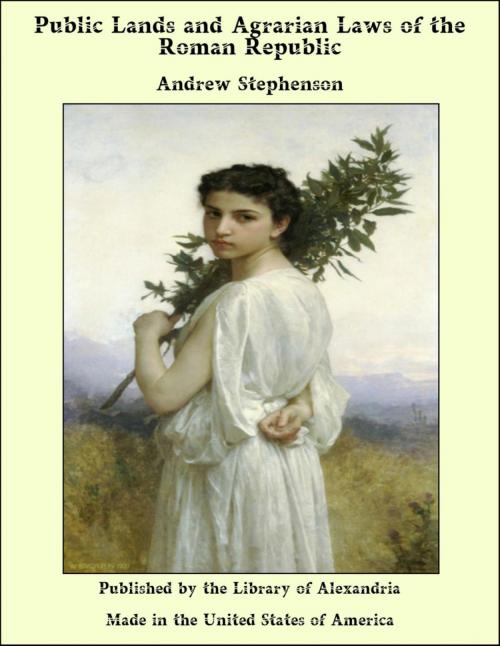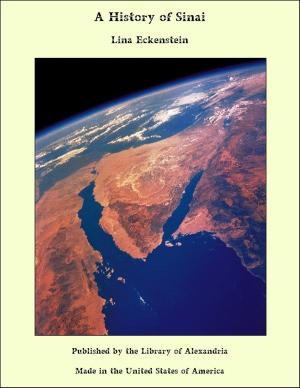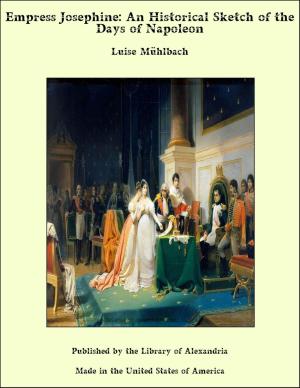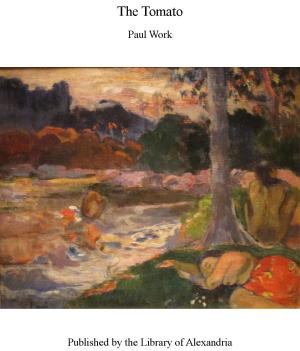Public Lands and Agrarian Laws of the Roman Republic
Nonfiction, Religion & Spirituality, New Age, History, Fiction & Literature| Author: | Andrew Stephenson | ISBN: | 9781465584847 |
| Publisher: | Library of Alexandria | Publication: | March 8, 2015 |
| Imprint: | Language: | English |
| Author: | Andrew Stephenson |
| ISBN: | 9781465584847 |
| Publisher: | Library of Alexandria |
| Publication: | March 8, 2015 |
| Imprint: | |
| Language: | English |
In the following pages it has been my object to trace the history of the domain lands of Rome from the earliest times to the establishment of the Empire. The plan of the work has been to sketch the origin and growth of the idea of private property in land, the expansion of the ager publicus by the conquest of neighboring territories, and its absorption by means of sale, by gift to the people, and by the establishment of colonies, until wholly merged in private property. This necessarily involves a history of the agrarian laws, as land distributions were made and colonies established only in accordance with laws previously enacted. My reason for undertaking such a work as the present is found in the fact that agrarian movements have borne more or less upon every point in Roman constitutional history, and a proper knowledge of the former is necessary to a just interpretation of the latter. This whole question presents numerous obscurities before which it has been necessary more than once to hesitate; it offers, both in its entirety and in detail, difficulties which I have at least earnestly endeavored to lessen. These obscurities and difficulties, arising in part from insufficiency of historical evidence and in part from the conflicting statements of the old historians, have been recognized by all writers and call forth on my part no claim for indulgence. This monograph is intended as a chapter merely of a history of the public lands and agrarian laws of Rome, written for the purpose of a future comparison with the more recent agrarian movements in England and America.
In the following pages it has been my object to trace the history of the domain lands of Rome from the earliest times to the establishment of the Empire. The plan of the work has been to sketch the origin and growth of the idea of private property in land, the expansion of the ager publicus by the conquest of neighboring territories, and its absorption by means of sale, by gift to the people, and by the establishment of colonies, until wholly merged in private property. This necessarily involves a history of the agrarian laws, as land distributions were made and colonies established only in accordance with laws previously enacted. My reason for undertaking such a work as the present is found in the fact that agrarian movements have borne more or less upon every point in Roman constitutional history, and a proper knowledge of the former is necessary to a just interpretation of the latter. This whole question presents numerous obscurities before which it has been necessary more than once to hesitate; it offers, both in its entirety and in detail, difficulties which I have at least earnestly endeavored to lessen. These obscurities and difficulties, arising in part from insufficiency of historical evidence and in part from the conflicting statements of the old historians, have been recognized by all writers and call forth on my part no claim for indulgence. This monograph is intended as a chapter merely of a history of the public lands and agrarian laws of Rome, written for the purpose of a future comparison with the more recent agrarian movements in England and America.















